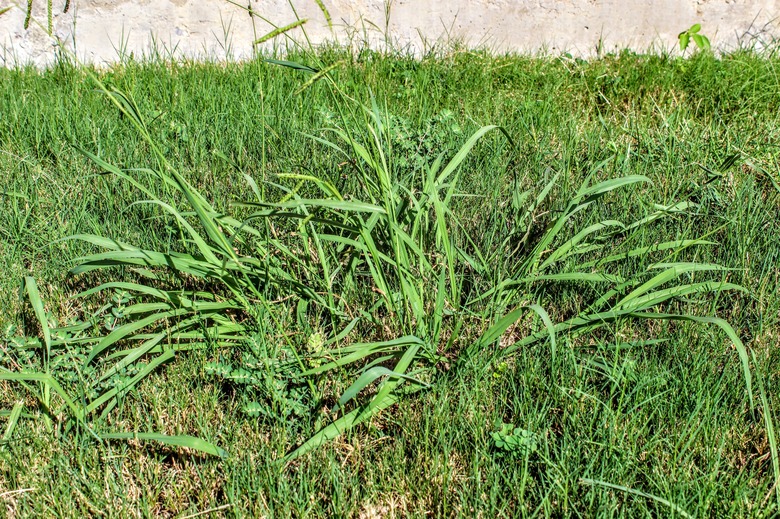Is Ammonia Used For Grass And Weed Killer?
We may receive a commission on purchases made from links.
Weeds can ruin the appearance of your garden or lawn, and they can cause damage to your other plants over time. Luckily, there are various ways to kill weeds — some safer than others. For example, ammonium hydroxide, or ammonia, is an ingredient that is sometimes useful as a herbicide. Because of this, you may be tempted to apply straight ammonia to your garden and lawn weeds. However, it's better to choose a commercial herbicide when you're trying to fix a weed problem chemically, as this is a safer option.
Tip
Theoretically, ammonia can be used as a grass and weed killer, but it's actually dangerous to apply it in your yard.
How Ammonia Works
How Ammonia Works
Ammonia has a high concentration of nitrogen, which can affect nutrient levels when applied to the soil. In fact, ammonium sulfate is sometimes used as an ingredient in fertilizers. It delivers nitrogen and helps plants maintain a healthy green color and grow faster, making it a vital tool for food production.
However, household ammonia is a caustic agent formulated for deep cleaning. This means it's highly corrosive, and when applied to garden weeds, is more likely to kill grass and other plants than to fertilize. For this reason, it has unfortunately gained a reputation as an effective herbicide. However, applying household ammonia in your yard is never a good idea.
Why Avoid Ammonia?
Why Avoid Ammonia?
One reason household ammonia is not safe to apply in your yard is that the chemical concentrations in household cleaning products may vary. This means you never know just how much ammonium hydroxide you may be applying. Plus the damage ammonia can do when applied as a weed killer can have a negative effect on the plants you want to keep.
Ammonium hydroxide is also dangerous to apply because it's water-soluble. This means after application in your garden, it can easily enter the ecosystem and cause even greater problems. It is highly toxic to fish and moderately toxic to aquatic invertebrates and mammals. Ammonia has some level of bioaccumulation risk as well, meaning if you apply it many times over a certain period, it can build up in the soil and make it inhospitable to plant life. Application of ammonia can also be dangerous, as it is a known irritant and can damage your skin, lungs and eyes.
How to Kill Weeds Safely
How to Kill Weeds Safely
Rather than attempting to play chemist and mix your own herbicide, it's safer and more effective to opt for a commercial product. This way, you can find one that's formulated for the weed species you want to target. You can also decide whether you want to apply a pre-emergent or post-emergent herbicide. And there are other choices to be made when selecting a herbicide, like whether to choose a selective weed killer to target only certain plants and whether to use a liquid or powdered product.
When applying herbicides in your yard, protect your eyes and skin with goggles and the appropriate gloves and, if necessary, a mask or respirator. Before using the product, carefully read and follow all the instructions on the label to protect yourself and your landscape.
